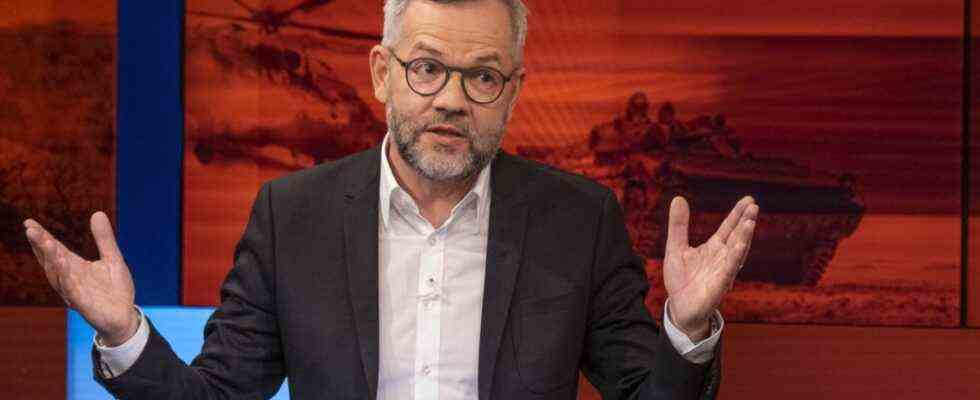Therefore, on the eve of Chancellor Olaf Scholz’s visit to Moscow, “Hard but fair” is above all fair. The group is working on Waldimir Putin and his motives and agrees on many points. That Putin wants to change the political map of Europe, that he wants to turn back the clock, that he might start a war that his own population doesn’t want, but that he may have speculated that he was dividing the West with his threatening gestures.
“Putin has not achieved his goal,” says SPD politician Michael Roth, chairman of the foreign affairs committee. “Putin is currently seeing that his aggression is welding the West together,” she agrees time-Journalist Mariam Lau to. The CDU foreign affairs expert Norbert Röttgen diagnoses that it is not NATO that scares Putin, but the “virus of freedom”https://www.sueddeutsche.de/medien/. “Democracy is his number one opponent,” says Röttgen.
So a good hour goes by with quite revealing analyses. But moderator Frank Plasberg wouldn’t be the experienced sharpener if he just let his show slip out like that. In the final quarter of an hour, Plasberg put all the buzzwords that drive German politics in connection with Russia and that have raised doubts about the attitude of the Germans among many allies: arms deliveries, North Stream 2 and Gerhard Schröder.
Plasberg teases the audience with a statement from former boxer Vitali Klitschko, who is now the mayor of Kiev. Klitschko makes fun of the 5000 German helmets for Ukraine and asks if the Germans will send pillows next.
Roth is being tormented by Plasberg with Nord Stream 2
No weapons for Ukraine, that’s the official German line so far, which is viewed critically by many neighboring countries. SPD man Roth wrestles with himself whether this can be sustained: “You see someone here who has doubts.” And Röttgen also considers weapons for Ukraine to be “morally legitimate,” but thinks it’s “right not to do it.” Because that cuts the lines of communication to Moscow.
With North Stream 2, of course, Roth von Plasberg is particularly tormented. He wants to know what is so difficult to put the word into your mouth. Roth’s answer is a bit more precise than Olaf Scholz’s. If it comes to violence by Russia “it should be clear that this project is on the table and has no future”.
Röttgen has fewer problems there: “If war comes, the project is dead.” Roth, on the other hand, has few problems with Gerhard Schröder, he is one of the few Social Democrats who clearly distanced himself from the ex-Chancellor’s statements from the start and is doing so now: “I don’t share Gerhard Schröder’s view at all. “
“Hard but fair” always includes reactions from the viewers, and Plasberg sums up the letters he receives about the show in his usual straightforward manner: what does the Ukraine concern us? Roth and Röttgen also constantly hear or read similar reactions, as they say. “I blame us for lacking empathy for Eastern Europe,” says Roth.
Plasberg then fades in a survey that makes clear the dilemma in which German politics is stuck. 43 percent of those surveyed are in favor of sanctions if the Russians invade Ukraine, 44 percent are against them, and in the case of North Stream 2, even 59 percent are in favor of sticking with the project. A man from Hanover who was once German chancellor should take note of such figures with satisfaction.
Peter Fahrenholz wishes that talk shows didn’t always invite the same guests. Because political discussions need exciting arguments instead of well-known points of view.
(photo: x)

